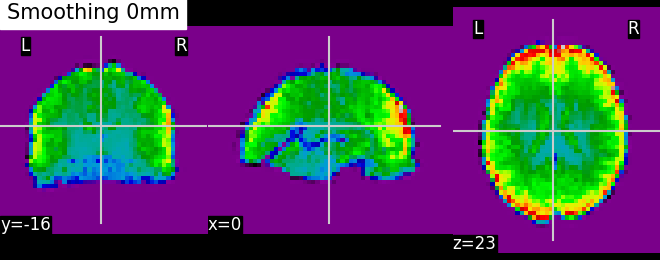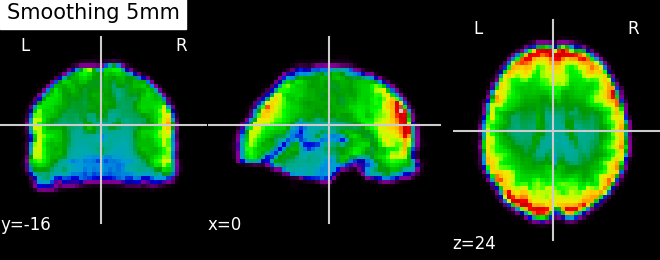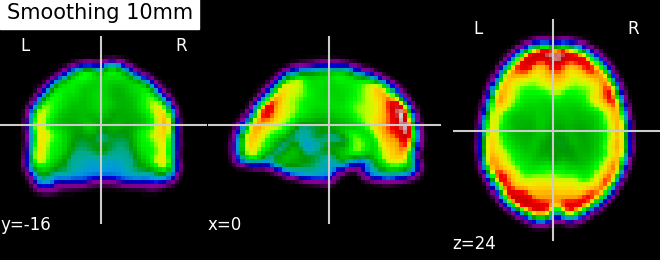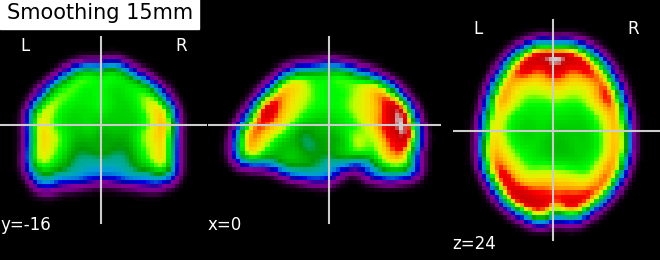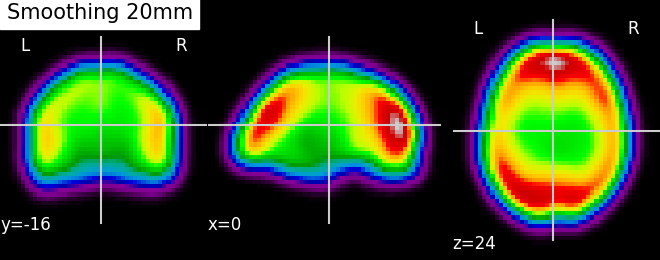Note
Click here to download the full example code or to run this example in your browser via Binder
9.7.3. Smoothing an image¶
Here we smooth a mean EPI image and plot the result
As we vary the smoothing FWHM, note how we decrease the amount of noise, but also lose spatial details. In general, the best amount of smoothing for a given analysis depends on the spatial extent of the effects that are expected.
Out:
First subject functional nifti image (4D) are located at: /home/nicolas/nilearn_data/development_fmri/development_fmri/sub-pixar123_task-pixar_space-MNI152NLin2009cAsym_desc-preproc_bold.nii.gz
/home/nicolas/GitRepos/nilearn-fork/nilearn/image/image.py:207: UserWarning:
The parameter 'fwhm' for smoothing is specified as 0. Setting it to None (no smoothing will be performed)
from nilearn import datasets, plotting, image
data = datasets.fetch_development_fmri(n_subjects=1)
# Print basic information on the dataset
print('First subject functional nifti image (4D) are located at: %s' %
data.func[0])
first_epi_file = data.func[0]
# First the compute the mean image, from the 4D series of image
mean_func = image.mean_img(first_epi_file)
# Then we smooth, with a varying amount of smoothing, from none to 20mm
# by increments of 5mm
for smoothing in range(0, 25, 5):
smoothed_img = image.smooth_img(mean_func, smoothing)
plotting.plot_epi(smoothed_img,
title="Smoothing %imm" % smoothing)
plotting.show()
Total running time of the script: ( 0 minutes 6.057 seconds)
Estimated memory usage: 198 MB

